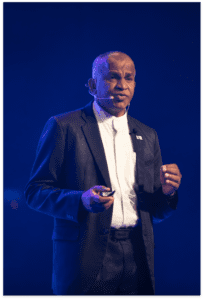A few days ago, I met Ali while having breakfast after my morning jog. Ali is one of my MBA students who decided to take a break from MBA. While his other course mates are about to graduate by end of this year, Ali is not sure whether he can even continue. Guess why Ali could not continue his MBA?
According to him, his job as a project manager is creating so much stress that it affects both his personal and professional life. “Firefighting project issues somehow becomes a major part of my job”, said Ali with frustration. I know Ali is very passionate to continue his MBA. In fact, he truly enjoys the learning experience and he knows the potential benefits of MBA.
Since he is well aware of my experience as a member of the New Generation Patrol Vessel (NGPV) project for about 14 years, he asked me a few questions on my hands-on experience from the project. He didn’t actually ask me during that breakfast of course, but he asked that while I was teaching the MBA project management module about 1 year ago. Sadly, that was the last MBA module Ali attended.
While enjoying our thosai and coffee, Ali asked me one very interesting question.
“Sir, is it possible to reduce firefighting in projects?”
Ali sounded as if it is impossible to manage projects without routine firefighting, conflicts and stress. Ali was taken aback when I answered,
“Yes Ali, absolutely!”
I shared my own mistakes as an accidental project manager and how these mistakes resulted in constant firefighting that caused toxic project environment. My brief learning opportunity with some experienced project managers from Germany and Australia as part of that NGPV project was extremely valuable for me to understand characteristics of a highly proactive project manager.
Proactive vs Reactive Project Managers
A quick Google Search will help us realise that among the definition of proactive is creating or controlling something to happen rather than responding to it after it has happened. Proactive project managers will apply tools, techniques and knowledge to develop effective integrated project management plan. They will execute this plan to achieve the project objectives. The opposite of proactive is reactive. Characteristics of reactive project managers are:
- Manage the project without a plan or don’t follow a plan.
- Feeling of not in control of their project.
- Always busy firefighting and only reacting to present issues as opposed to predetermined project success criteria.
Ali is a perfect match for a reactive project manager, and he needs to change this. Even though he is hardworking and committed, Ali is currently facing the natural consequences of being reactive. What are the consequences of being a reactive project manager? Well, they are too many actually. One thing for sure, you might end up similar to Ali’s situation. Rather than discussing that in detail, let’s have a look at the habits of highly proactive project managers.
They develop people skill: Managing cost, scope and schedule are core responsibilities of project managers in achieving project objectives. Proactive project managers will be aware of the interdependent nature of project environment to achieve these objectives. Thus, they make concerted effort to build a strong relationship with their stakeholders. While technical knowledge is very important, it is not enough to manage a project successfully. EQ matters to be a successful project manager. Proactive project managers will strive to have a healthy emotional bank account (EBA). How is your EBA, is it healthy?
At times conflict is not avoidable in the project environment. Proactive project managers will not expect conflict-free project. However, they know how to deal with conflicts with professionalism by documenting the related issues that may cause conflict in their project issue log. They respect people and manage conflict. I asked Ali, whether does he own an issue log for his project. Ali then smiled and asked me back “do you have a template for the issue log?”
They take project risk management seriously: During my training and consulting work, I often ask these project managers whether they think project risk management is important. Majority of them always respond with a resounding YES. However, with more detail discussions, I realised most of them rarely execute the risk management as an integral part of the planning and executing projects.
Proactive project managers will work with relevant stakeholders to actively identify, analyse and mitigate project risks. They know risks are a future uncertainty that matters. Managing risk effectively will reduce the probability of future issues.
They monitor project progress and take action: Proactive project managers are well aware that projects won’t always happen according to the plan. They will monitor project progress based on the project plan. When there is variance between reality and plan, they won’t immediately blame others. They are competent to determine the root cause of the variance. Proactive project managers will always take the required corrective and preventive actions. As a team player, they won’t hesitate to also seek help from the relevant stakeholders. With a healthy emotional bank account, getting help from the stakeholders will be easy. Proactive project managers focus on the solution while reactive project managers focus on the problem.

Ali realised that the price of being reactive is too costly for his personal health, family life and project performance. Promise me that you won’t fall into the trap where Ali is in. Promise me that if you somehow are heading that way, you need to take a step back and work on the changes immediately. And it has to start with the mindset.






